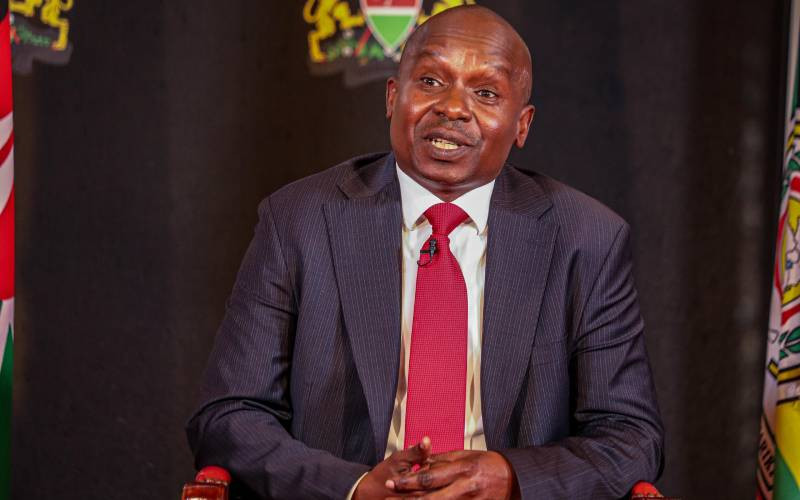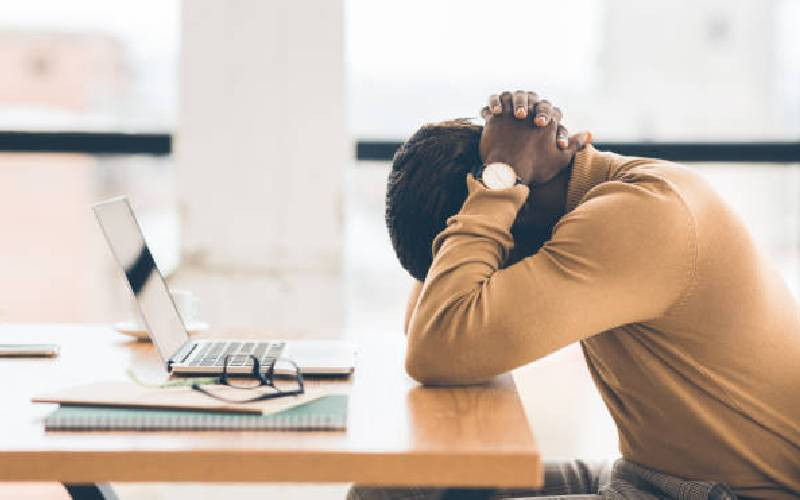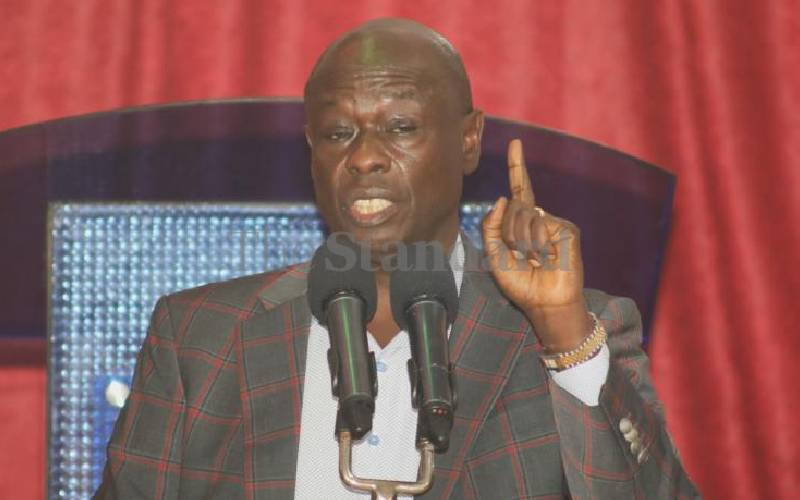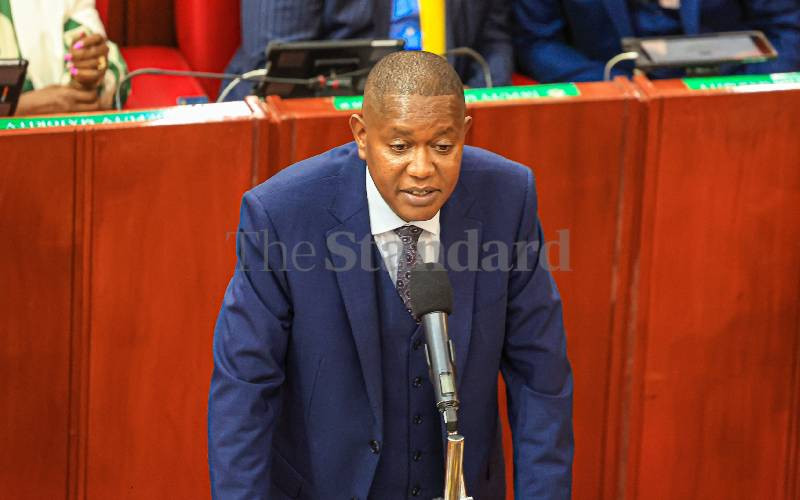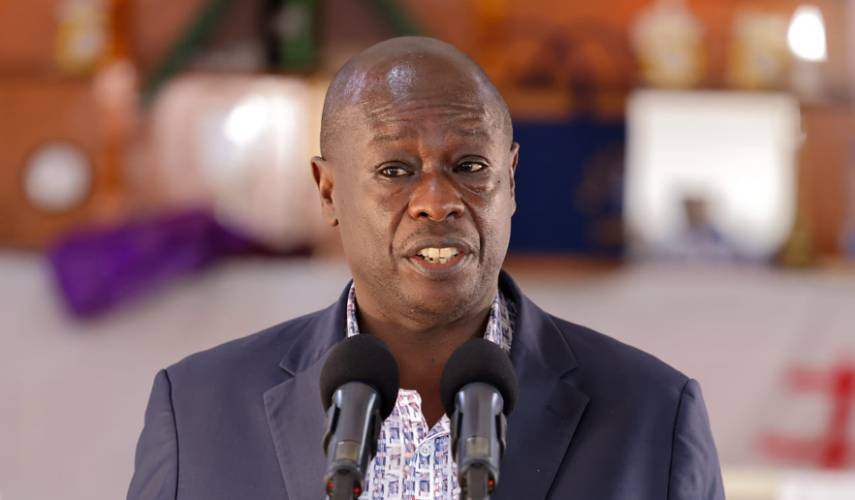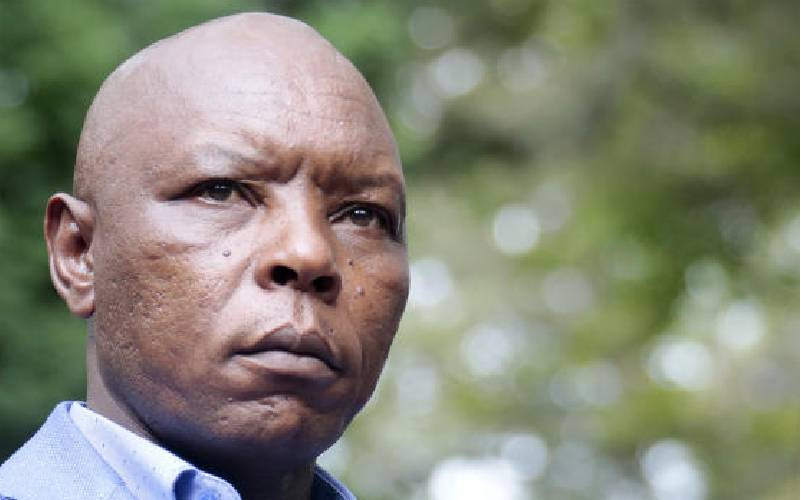
Something is afoot in Mt Kenya and former Mungiki leader Maina Njenga is at the heart of what is a complex game.
In the last two weeks, he has addressed public meetings attended by thousands of youthful followers.
On October 1, he joined elected leaders at Ruiru stadium where Kikuyu artist Jose Gatutura was conducting a talent search. The former Mungiki leader who has had run-ins with security agents in the recent past, received a heroic welcome and led a Mau Mau song.
A week later, he joined Nyeri tycoon Thuo Mathenge during the Kikuyu Men Conference (KMC) at Kimorori, Kenol town, the gateway of Mt Kenya region where they agreed to establish 'village cells' to promote hegemonic masculinity in the community.
Njenga presided over the event attended by more than 2,000 youth, where Mathenge, dressed in Kikuyu traditional regalia (githii) addressed the conference tasked to bring together all Kikuyu leaders. Interestingly, among the leaders supposed to be reconciled by the group are former President Uhuru Kenyatta and Deputy President Rigathi Gachagua.
There is no love lost between Gachagua and Njenga, who he recently referred to as a leader of a proscribed criminal group.
The Kikuyu Men Conference resolved to establish cells in every village comprising 12 elders and youth tasked with teaching children the Agikuyu culture every Sunday.
"We shall establish county coordination offices of the KMC, and hold regular Kikuyu men conferences in different counties so that men can take their rightful positions as head of the family and leaders of our nation to be our brothers' keeper, a man for a man, a man for a boy and a man for the community," part of resolutions read.
The cells will also encourage having a minimum of five children per man, fight illicit brew and push for the re-introduction of Agikuyu subject in schools.
"We have sent Mathenge to ask Gachagua for a ceasefire and agree to dialogue with Uhuru so that the community can unite. Before that, those who stole Uhuru's goats must return them as other community leaders give out goats for elders (mburi cia athuri)," Njenga proclaimed.
He claimed he had the blessings of the former President who promised to join unity and prosperity meetings. During the meeting, entrepreneurs and motivational speakers led by Dr Paul Kibicho addressed the youth on job creation, innovation and entrepreneurship.
On October 8, Njenga attended a thanksgiving of former broadcaster Waithira Muithirania at Ruiru where his supporters demanded he address them but booed East African Legislative Assembly MP Kanini Kega.
It took the former Mungiki leader's intervention to calm the crowd and appealed to them to listen to Kega as elections were over and it was time for the community to forge ahead. He challenged Mt Kenya residents to accept their choice of government and support it.
Njenga's increased public appearances started after his woes with the State four months ago when three of his homes were raided by security agents and DCI boss Mohamed Amin would later claim two firearms and over 90 rolls of bhang were recovered.
He was later taken to court and charged. Three weeks ago, he claimed to have been abducted and later released at night and offered fare to go home.
His latest overtures are being watched keenly in a region that bore the brunt of the police crackdown on Mungiki adherents where hundreds of youth became victims of extra-judicial killings while some members were associated with orgies of bloodletting.
According to Murang'a Bishops forum chairman Stephen Maina, churches have risen to protect the youth following questions about why women and other stakeholders have been left out of the initiative.
"It's suspicious and that is why we seek to raise awareness among our youth to join the 'church cells' for counselling, unity, and prayer sessions since we read ulterior motives in the grouping," said the prelate.
The church has also embarked on a charm offensive to the youth, announcing male circumcision in December even as elders maintain the church should spread the gospel and not engage in cultural affairs.
A security expert, Essau Kioni, who is a former spy, has raised questions over the grouping led by Njenga wondering why he was seeking unity of elected leaders on the basis of Agikuyu culture and not through a political party.
"Mt Kenya is not suffering from cultural knowledge deficit but lacks political unity and, therefore, the formation of a common political party in consultations with political leaders should be the emphasis, not culture," he said.
Through a formidable political party, Kioni opined, the leaders would attract respect from outside forces and protect the community leaders from State punishment.
However, John Kamau, a political analyst argues that proponents of the grouping could be trying to revive a group akin to Young Kikuyu Association, started by Harry Thuku to demand their rights.
"The leaders of the group could be having such an arrangement in their mind so that later on, the group propels them to greater political heights such as being in elective positions or being kingmakers," he said.
He said by establishing the group, the organisers could be adhering to Thomas Hobbes' social contract theory where Agikuyu community want to coalesce and come up with society by-laws to protect itself from political isolation and force the powers that be to accept its regional leaders.
However, Kamau cautions that after the initiative serves its purpose, it would be left with a structured group which may cause chaos.
"That is basically how Mungiki came into being and my fear would be the youth will be used to settle political scores and when they are done, the State will be left to deal with them and that is how our youth died during the late John Michuki's tenure as Minister for Security," he said.
He believes the grouping could have the blessings of some state actors which explains the presence of the police escort during the event noting someone in government is trying to display political might.
"Whether or not the organisers want to be kingmakers it is clearly evident that someone senior in government has a hand in the group," Kamau said.
But leaders led by Githunguri MP Gathoni Wamuchomba believe Njenga's supporters have started coming out because they feel they have been neglected by the leaders they elected.
"Government should listen to what Njenga is saying together with his supporters because they are communicating and expressing frustrations on their government," she said.
 The Standard Group Plc is a multi-media organization with investments in media platforms spanning newspaper print
operations, television, radio broadcasting, digital and online services. The Standard Group is recognized as a
leading multi-media house in Kenya with a key influence in matters of national and international interest.
The Standard Group Plc is a multi-media organization with investments in media platforms spanning newspaper print
operations, television, radio broadcasting, digital and online services. The Standard Group is recognized as a
leading multi-media house in Kenya with a key influence in matters of national and international interest.


